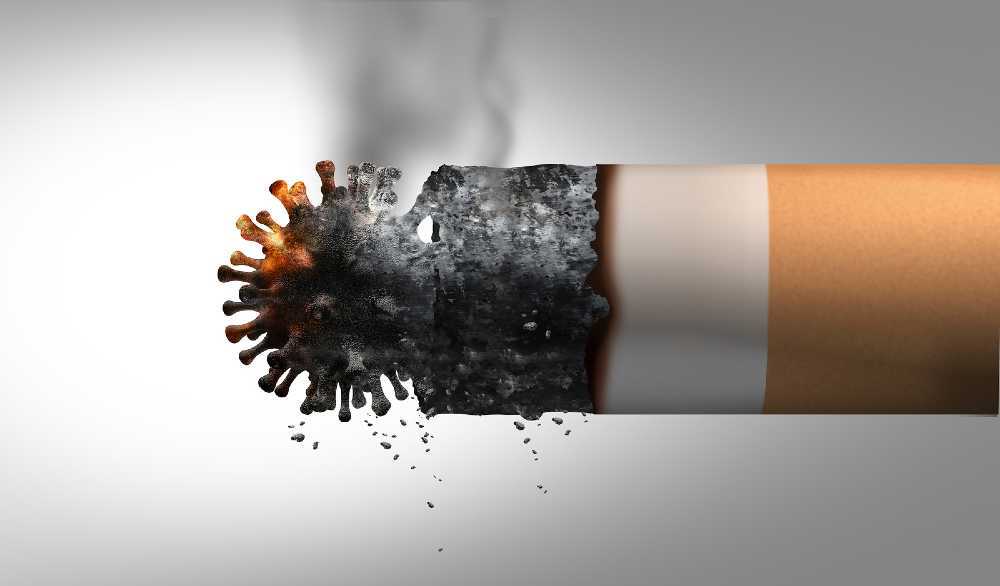The tobacco industry and the results of Covid-19

Image collected
As the Covid-19 pandemic spreads, Stopping Tobacco Organizations and Products (End) -- a worldwide tobacco industry watchdog, has strongly urged governments and civil society to hold tobacco companies in charge of the responsibility they have positioned on persons and health systems.
In line with the World Health Company (WHO), tobacco kills a lot more than 8 million persons globally every year, more than 7 million of these from direct tobacco use and about 1.2 million non-smokers subjected to second-hand smoke.
The Global Tobacco Control notes Bangladesh has a population of 162.9 million people young and old; 26.2% of the adult people smoke tobacco items and 31.7% apply smokeless tobacco. Around 113,670 persons in Bangladesh die each year from diseases due to tobacco use.
Covid-19 can be an infectious disease that generally attacks the lungs. Smoking cigarettes impairs the pulmonary immune function, making it harder to combat off coronavirus and additional respiratory diseases.
Studies by public health industry experts, recently commissioned by Who all, found that smokers are in higher risk of growing severe Covid-19 complications and death. Smokers can also be physically additional vulnerable to contracting Covid-19, as the take action of smoking involves contact of fingertips with the lips, which escalates the possibility of transmission.
Even before the Covid-19 pandemic, tobacco placed a massive burden on health care systems globally. A WHO 2018 analysis estimated that smoking led to $422bn in well being costs in one year.
Without end to the pandemic around the corner and Bangladesh, Pakistan, and India being among the worst affected, the region’s under-par and over-worked health system is struggling to keep up with the sudden upsurge in demand for means and manpower.
Much of the previous global concentrate on prevention and cessation focused around non-infective respiratory, cardiovascular, and cancer-related deaths. Even so, during pandemics like Covid-19, the chance of infectious complications becomes the predominant focus and concern.
Some countries have banned the sales of tobacco items during lockdown periods. Unfortunately, Bangladesh didn't. Now, as healthcare systems rush to increase capacity for the surging quantity of patients, inadequate open public health infrastructure will require even more funding.
The scenario is far worse for poorer countries: Based on the Tobacco Atlas, the monetary cost of smoking in Bangladesh amounts to Tk158,578m. This includes direct costs linked to healthcare expenditures and indirect costs related to lost productivity due to early mortality and morbidity.
2020/06/samsung-june-offer-dt-1170x90-1592483732604.gif
Tobacco companies ought to be held accountable if cigarette smoking results found in disease and death. Smoking is a highly addictive substance and quitting challenging for most smokers. It's been proven beyond doubt that the tobacco sector is aware of the undesireable effects of smoking.
Allegedly, it deliberately manipulates the number of nicotine in smoking cigarettes to keep addiction and has attemptedto conceal these issues. Preferably, the world should try to be tobacco-free, but that is unlikely to happen soon. How then if the authorities deal with this problem?
Governments found in South Asia which may have ratified the Framework Convention on Tobacco Control, a worldwide treaty, have the energy to hold tobacco businesses financially and legally accountable for their abuses.
Our government should use that power to regulate the industry and discourage smoking cigarettes. The simplest way is usually a steep upsurge in taxes, resulting in a significant decrease in demand. These may also yield much needed revenue that can be allocated to support health care systems.
Research features shown that whenever tobacco prices rise, fewer people begin using tobacco, more persons quit, and users reduce their intake. This is also true for youths and other price-sensitive consumers.
Governments may also levy fees on tobacco firms to fund quit-smoking programs. WHO suggests such costs may include licensing, sign up, manufacturing and retail fees, and take penalties for non-compliance.
Tobacco companies have already been participating in reprehensible PR gimmicks through the Covid-19 pandemic. They possess provided ventilators, masks, and PPE to health conveniences and built donations to charities. These token gestures arrive nowhere near compensating for the great damage caused and the abundant gains reaped at the expense of people and governments.
The Covid-19 pandemic has brought into sharp focus the immense human and financial costs of healthcare, monetary recovery, and investments in better public health. Governments include the power to create tobacco companies pay for the harm they have triggered before and through the pandemic and to use the revenue generated to invest in critically needed healthcare system enhancement. Why don't we not delay any further.
Source: https://www.dhakatribune.com